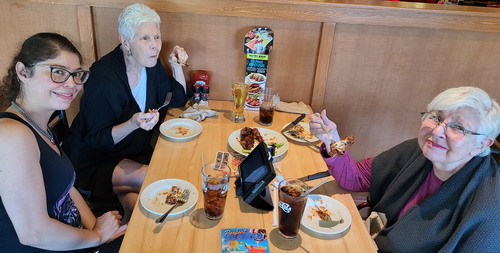 I have written over a million words on health topics over the last 15 years as a way to share self-care tips with you, my patients. Your health is a very important topic that needs lots of self-awareness in order to produce good results. The odds are stacked hugely against us in this modern world. Being healthy works directly against the profit goals of many monied interests in our society. Most industries of all sorts produce some level of toxic impact on the world we try to live in and vast sums of money are being made producing pharmaceuticals to try to undo the damage the rest of industry has created. It is estimated that 18% of every dollar spent in America is spent on healthcare. For comparison, military spending is only a little over 3% of every dollar spent in America.
I have written over a million words on health topics over the last 15 years as a way to share self-care tips with you, my patients. Your health is a very important topic that needs lots of self-awareness in order to produce good results. The odds are stacked hugely against us in this modern world. Being healthy works directly against the profit goals of many monied interests in our society. Most industries of all sorts produce some level of toxic impact on the world we try to live in and vast sums of money are being made producing pharmaceuticals to try to undo the damage the rest of industry has created. It is estimated that 18% of every dollar spent in America is spent on healthcare. For comparison, military spending is only a little over 3% of every dollar spent in America.
 Just on a practical financial level, it makes sense to do everything we can to stay healthy, but that is a minor concern. Our ability to participate and enjoy life depends upon having good health. I hear about this all day long. Pain and health concerns literally control your ability to feel good. And yet getting folks to adopt and keep with healthy lifestyle habits is in my experience a constant uphill battle. Everyone agrees with the idea of being healthy, but doing the work to make it happen seems to be lacking. This certainly has nothing to do with laziness. Take for example the fellow I saw last week who told me he works 16 to 18 hours a day doing heavy work and hurts everywhere. When I suggested that working that hard all the time might not support his health, he thought I was being absurd. Most of my patients are hard-working folks. The issue is a lack of motivation to stay healthy. They like the idea, but not the kind of effort involved.
Just on a practical financial level, it makes sense to do everything we can to stay healthy, but that is a minor concern. Our ability to participate and enjoy life depends upon having good health. I hear about this all day long. Pain and health concerns literally control your ability to feel good. And yet getting folks to adopt and keep with healthy lifestyle habits is in my experience a constant uphill battle. Everyone agrees with the idea of being healthy, but doing the work to make it happen seems to be lacking. This certainly has nothing to do with laziness. Take for example the fellow I saw last week who told me he works 16 to 18 hours a day doing heavy work and hurts everywhere. When I suggested that working that hard all the time might not support his health, he thought I was being absurd. Most of my patients are hard-working folks. The issue is a lack of motivation to stay healthy. They like the idea, but not the kind of effort involved.
 Generally, we like to apply effort towards things that involve tangible and fairly immediate rewards. For example, we go to work for a paycheck we will receive in a couple of weeks. How many of us would go to work in the hope that someday we might get paid? Caring for our health is often more like the second scenario. Self-care is frequently about applying effort today on the hope that 20 years from now we don’t get diabetes or cancer or some other poor health outcome. Self-care is a long game. You don’t go to the gym thinking that in a couple weeks you will have lost 50 pounds and put on a six-pack set of abs. The hope might be that someday you will lose that 50 pounds, but the six-pack may be more of a fantasy.
Generally, we like to apply effort towards things that involve tangible and fairly immediate rewards. For example, we go to work for a paycheck we will receive in a couple of weeks. How many of us would go to work in the hope that someday we might get paid? Caring for our health is often more like the second scenario. Self-care is frequently about applying effort today on the hope that 20 years from now we don’t get diabetes or cancer or some other poor health outcome. Self-care is a long game. You don’t go to the gym thinking that in a couple weeks you will have lost 50 pounds and put on a six-pack set of abs. The hope might be that someday you will lose that 50 pounds, but the six-pack may be more of a fantasy.
 Patients don’t have much trouble coming into the office for treatment for their back pain because the expectation is that within a short time, their pain will be better. However, getting patients to do daily balance exercises to prevent possible falls is very difficult. The motivation to generate attention and regular effort to prevent a possible problem is simply not as great as the drive to deal with pain right now. I use techniques, such as taking tiny steps towards the larger health goal, to make the process easier, but even that motivation seems to be short-lived.
Patients don’t have much trouble coming into the office for treatment for their back pain because the expectation is that within a short time, their pain will be better. However, getting patients to do daily balance exercises to prevent possible falls is very difficult. The motivation to generate attention and regular effort to prevent a possible problem is simply not as great as the drive to deal with pain right now. I use techniques, such as taking tiny steps towards the larger health goal, to make the process easier, but even that motivation seems to be short-lived.
 Another aspect of health goals that are challenging is that they often involve not doing certain things – things that are pleasurable but also toxic. How many times do you have to hear Stay away from sugar, don’t drink Coke, smoke cigarettes, or eat at McDonalds? If there is an immediate negative consequence, people are more likely to listen to this type of advice: don’t drink the water in Mexico or you will end up with the runs. But when the consequences are 20 years down the road and not everybody even experiences the consequences, there is little motivation to comply with the advice. What does it take to ramp up the motivation to want to be healthy?
Another aspect of health goals that are challenging is that they often involve not doing certain things – things that are pleasurable but also toxic. How many times do you have to hear Stay away from sugar, don’t drink Coke, smoke cigarettes, or eat at McDonalds? If there is an immediate negative consequence, people are more likely to listen to this type of advice: don’t drink the water in Mexico or you will end up with the runs. But when the consequences are 20 years down the road and not everybody even experiences the consequences, there is little motivation to comply with the advice. What does it take to ramp up the motivation to want to be healthy?
 A special situation exists with folks who want to look good in order to attract a mate or achieve social status. Here they are willing to engage in all sorts of insane levels of effort in order to get what they are after. In these situations they are very attuned to feedback, positive and negative, feeding their drive. They are getting the payoff for their behaviors all the time in how people around them react to them. Most of the fitness industry appeals directly to this demographic, as do the beauty and fashion industries. Unfortunately, looking good and being healthy are not the same thing. People will engage in many kinds of unhealthy behaviors in the name of looking good. Look no further than your local plastic surgeon to see all the ways you can slice and dice up your body in the name of beauty. However, my feeling is that this whole arena is not really about finding love so much as it is about achieving influence and power.
A special situation exists with folks who want to look good in order to attract a mate or achieve social status. Here they are willing to engage in all sorts of insane levels of effort in order to get what they are after. In these situations they are very attuned to feedback, positive and negative, feeding their drive. They are getting the payoff for their behaviors all the time in how people around them react to them. Most of the fitness industry appeals directly to this demographic, as do the beauty and fashion industries. Unfortunately, looking good and being healthy are not the same thing. People will engage in many kinds of unhealthy behaviors in the name of looking good. Look no further than your local plastic surgeon to see all the ways you can slice and dice up your body in the name of beauty. However, my feeling is that this whole arena is not really about finding love so much as it is about achieving influence and power.
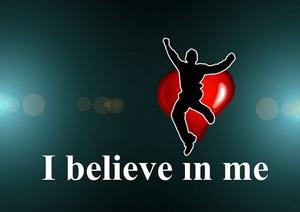 Motivation to be healthy basically comes down to self-love. Some folks refer to this as self-pride, but the general idea is a feeling of appreciation for yourself. When you love yourself you want the best for yourself. You want to take care of yourself. You recognize that your body is the vehicle that you use to experience life with, and if it does not work, well, your ability to enjoy life will be diminished. Feeling good inside your skin becomes a major consideration when you step into loving yourself. The only sustainable way to feel good inside your own skin is to be healthy. I say sustainable because there are lots of drugs that will produce a temporary feeling of feeling good, but they all have longer-term negative consequences that really don’t feel good. We are all aware of the typical life path of the chronic drug user – not pretty.
Motivation to be healthy basically comes down to self-love. Some folks refer to this as self-pride, but the general idea is a feeling of appreciation for yourself. When you love yourself you want the best for yourself. You want to take care of yourself. You recognize that your body is the vehicle that you use to experience life with, and if it does not work, well, your ability to enjoy life will be diminished. Feeling good inside your skin becomes a major consideration when you step into loving yourself. The only sustainable way to feel good inside your own skin is to be healthy. I say sustainable because there are lots of drugs that will produce a temporary feeling of feeling good, but they all have longer-term negative consequences that really don’t feel good. We are all aware of the typical life path of the chronic drug user – not pretty.
In the past, I have written several articles on the subject of self-love. Here is a link to several of them on my website. Here
 The basic idea revolves around appreciating yourself here and now just as you are. To do this requires several perspectives about life and your place in it that most people do not typically embrace. One important one is that you are not supposed to be perfect. You are a student here, not a finished product. You are here to learn various skills that will empower your ability to connect with others and to create your manifestation in this world. I call the skills that work well virtues. The skills that are kind of half-baked are just that, not done yet. Learning is about coming to grips with stuff we don’t know; stuff outside our comfort zone. Life is supposed to be uncomfortable some of the time. Spending lots of effort resisting things that you don’t like because they are uncomfortable is counterproductive. Embrace the uncomfortable and learn how to participate with it successfully.
The basic idea revolves around appreciating yourself here and now just as you are. To do this requires several perspectives about life and your place in it that most people do not typically embrace. One important one is that you are not supposed to be perfect. You are a student here, not a finished product. You are here to learn various skills that will empower your ability to connect with others and to create your manifestation in this world. I call the skills that work well virtues. The skills that are kind of half-baked are just that, not done yet. Learning is about coming to grips with stuff we don’t know; stuff outside our comfort zone. Life is supposed to be uncomfortable some of the time. Spending lots of effort resisting things that you don’t like because they are uncomfortable is counterproductive. Embrace the uncomfortable and learn how to participate with it successfully.
 Can you see how different perspectives can shift your view of yourself? How much time do people spend judging themselves because their life is not perfect, their abilities with life are less than glamorous, and they don’t look or feel like a Hollywood movie star? Well, you are not supposed to be that ideal image of perfection because that is a fantasy, and that fantasy is counter to our real purpose in being alive. We are here to put up a good fight, not to fret about being the winner. There are no winners in life because the game starts the moment you are born and does not end until the moment you die. There is no point where someone rings the bell, calls a halt to the action, and proclaims someone a winner. We are here to embrace the challenge of being alive. There is no point in trying to reach some imaginary point where the challenge stops. That is probably why old age is such a pain. When we start to get a handle on how to live life successfully, along comes the challenge of your body falling to dust.
Can you see how different perspectives can shift your view of yourself? How much time do people spend judging themselves because their life is not perfect, their abilities with life are less than glamorous, and they don’t look or feel like a Hollywood movie star? Well, you are not supposed to be that ideal image of perfection because that is a fantasy, and that fantasy is counter to our real purpose in being alive. We are here to put up a good fight, not to fret about being the winner. There are no winners in life because the game starts the moment you are born and does not end until the moment you die. There is no point where someone rings the bell, calls a halt to the action, and proclaims someone a winner. We are here to embrace the challenge of being alive. There is no point in trying to reach some imaginary point where the challenge stops. That is probably why old age is such a pain. When we start to get a handle on how to live life successfully, along comes the challenge of your body falling to dust.
 Life is a waveform. Sometimes we are up and sometimes we are down. We are immersed in the ocean of life and the waves never stop. From my perspective, my goal is to learn how to ride those waves and stay upright on my surfboard. My body needs to be agile, limber, strong, and healthy to be able to do this. I have to have my wits about me and be present in this moment. It is hard to have your wits about you when you are in pain. It is hard to be present when the present is full of frustration because one’s body is hard to move, one’s digestion is crap, and one’s memory is full of moth holes. Health is a long-term investment. When you are twenty-something, that future seems far away. But as you end up in your forties, you start to feel the hand of age start to tighten its grip on you. You may deny it for a while, but eventually, health becomes a priority. By the time it does, it is usually too late to regain youthful health. At best you fight a holding action trying to slow down the inevitable march of time.
Life is a waveform. Sometimes we are up and sometimes we are down. We are immersed in the ocean of life and the waves never stop. From my perspective, my goal is to learn how to ride those waves and stay upright on my surfboard. My body needs to be agile, limber, strong, and healthy to be able to do this. I have to have my wits about me and be present in this moment. It is hard to have your wits about you when you are in pain. It is hard to be present when the present is full of frustration because one’s body is hard to move, one’s digestion is crap, and one’s memory is full of moth holes. Health is a long-term investment. When you are twenty-something, that future seems far away. But as you end up in your forties, you start to feel the hand of age start to tighten its grip on you. You may deny it for a while, but eventually, health becomes a priority. By the time it does, it is usually too late to regain youthful health. At best you fight a holding action trying to slow down the inevitable march of time.
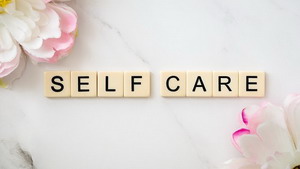 The purpose of this newsletter is to suggest that now is the time to engage in the shift in priorities that puts loving your body at the top of the list. If you don’t take care of yourself first, you lose the ability to care for others.
The purpose of this newsletter is to suggest that now is the time to engage in the shift in priorities that puts loving your body at the top of the list. If you don’t take care of yourself first, you lose the ability to care for others.
Really, take care of yourself!
David
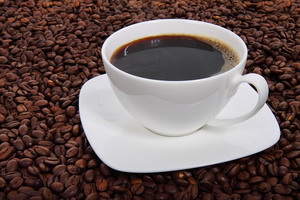 Espresso for Alzheimer’s!
Espresso for Alzheimer’s!
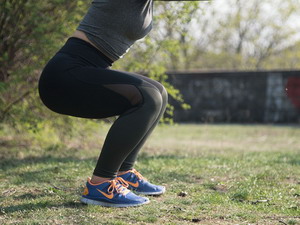 Isometrics best for lowering blood pressure
Isometrics best for lowering blood pressure
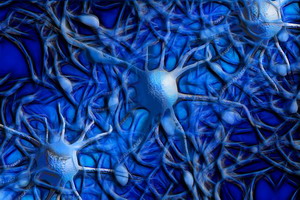 Growing replacement brain tissue
Growing replacement brain tissue
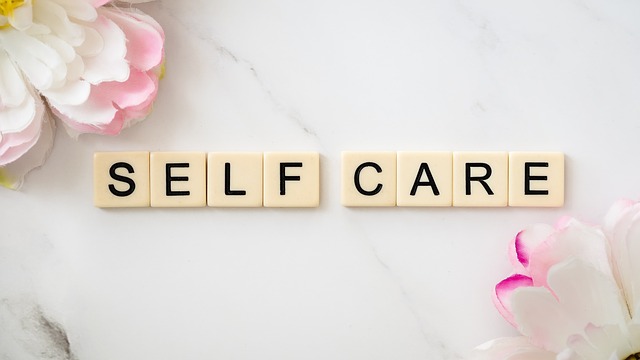
 I have written over a million words on health topics over the last 15 years as a way to share self-care tips with you, my patients. Your health is a very important topic that needs lots of self-awareness in order to produce good results. The odds are stacked hugely against us in this modern world. Being healthy works directly against the profit goals of many monied interests in our society. Most industries of all sorts produce some level of toxic impact on the world we try to live in and vast sums of money are being made producing pharmaceuticals to try to undo the damage the rest of industry has created. It is estimated that 18% of every dollar spent in America is spent on healthcare. For comparison, military spending is only a little over 3% of every dollar spent in America.
I have written over a million words on health topics over the last 15 years as a way to share self-care tips with you, my patients. Your health is a very important topic that needs lots of self-awareness in order to produce good results. The odds are stacked hugely against us in this modern world. Being healthy works directly against the profit goals of many monied interests in our society. Most industries of all sorts produce some level of toxic impact on the world we try to live in and vast sums of money are being made producing pharmaceuticals to try to undo the damage the rest of industry has created. It is estimated that 18% of every dollar spent in America is spent on healthcare. For comparison, military spending is only a little over 3% of every dollar spent in America. Just on a practical financial level, it makes sense to do everything we can to stay healthy, but that is a minor concern. Our ability to participate and enjoy life depends upon having good health. I hear about this all day long. Pain and health concerns literally control your ability to feel good. And yet getting folks to adopt and keep with healthy lifestyle habits is in my experience a constant uphill battle. Everyone agrees with the idea of being healthy, but doing the work to make it happen seems to be lacking. This certainly has nothing to do with laziness. Take for example the fellow I saw last week who told me he works 16 to 18 hours a day doing heavy work and hurts everywhere. When I suggested that working that hard all the time might not support his health, he thought I was being absurd. Most of my patients are hard-working folks. The issue is a lack of motivation to stay healthy. They like the idea, but not the kind of effort involved.
Just on a practical financial level, it makes sense to do everything we can to stay healthy, but that is a minor concern. Our ability to participate and enjoy life depends upon having good health. I hear about this all day long. Pain and health concerns literally control your ability to feel good. And yet getting folks to adopt and keep with healthy lifestyle habits is in my experience a constant uphill battle. Everyone agrees with the idea of being healthy, but doing the work to make it happen seems to be lacking. This certainly has nothing to do with laziness. Take for example the fellow I saw last week who told me he works 16 to 18 hours a day doing heavy work and hurts everywhere. When I suggested that working that hard all the time might not support his health, he thought I was being absurd. Most of my patients are hard-working folks. The issue is a lack of motivation to stay healthy. They like the idea, but not the kind of effort involved. Generally, we like to apply effort towards things that involve tangible and fairly immediate rewards. For example, we go to work for a paycheck we will receive in a couple of weeks. How many of us would go to work in the hope that someday we might get paid? Caring for our health is often more like the second scenario. Self-care is frequently about applying effort today on the hope that 20 years from now we don’t get diabetes or cancer or some other poor health outcome. Self-care is a long game. You don’t go to the gym thinking that in a couple weeks you will have lost 50 pounds and put on a six-pack set of abs. The hope might be that someday you will lose that 50 pounds, but the six-pack may be more of a fantasy.
Generally, we like to apply effort towards things that involve tangible and fairly immediate rewards. For example, we go to work for a paycheck we will receive in a couple of weeks. How many of us would go to work in the hope that someday we might get paid? Caring for our health is often more like the second scenario. Self-care is frequently about applying effort today on the hope that 20 years from now we don’t get diabetes or cancer or some other poor health outcome. Self-care is a long game. You don’t go to the gym thinking that in a couple weeks you will have lost 50 pounds and put on a six-pack set of abs. The hope might be that someday you will lose that 50 pounds, but the six-pack may be more of a fantasy. Patients don’t have much trouble coming into the office for treatment for their back pain because the expectation is that within a short time, their pain will be better. However, getting patients to do daily balance exercises to prevent possible falls is very difficult. The motivation to generate attention and regular effort to prevent a possible problem is simply not as great as the drive to deal with pain right now. I use techniques, such as taking tiny steps towards the larger health goal, to make the process easier, but even that motivation seems to be short-lived.
Patients don’t have much trouble coming into the office for treatment for their back pain because the expectation is that within a short time, their pain will be better. However, getting patients to do daily balance exercises to prevent possible falls is very difficult. The motivation to generate attention and regular effort to prevent a possible problem is simply not as great as the drive to deal with pain right now. I use techniques, such as taking tiny steps towards the larger health goal, to make the process easier, but even that motivation seems to be short-lived. Another aspect of health goals that are challenging is that they often involve not doing certain things – things that are pleasurable but also toxic. How many times do you have to hear Stay away from sugar, don’t drink Coke, smoke cigarettes, or eat at McDonalds? If there is an immediate negative consequence, people are more likely to listen to this type of advice: don’t drink the water in Mexico or you will end up with the runs. But when the consequences are 20 years down the road and not everybody even experiences the consequences, there is little motivation to comply with the advice. What does it take to ramp up the motivation to want to be healthy?
Another aspect of health goals that are challenging is that they often involve not doing certain things – things that are pleasurable but also toxic. How many times do you have to hear Stay away from sugar, don’t drink Coke, smoke cigarettes, or eat at McDonalds? If there is an immediate negative consequence, people are more likely to listen to this type of advice: don’t drink the water in Mexico or you will end up with the runs. But when the consequences are 20 years down the road and not everybody even experiences the consequences, there is little motivation to comply with the advice. What does it take to ramp up the motivation to want to be healthy? A special situation exists with folks who want to look good in order to attract a mate or achieve social status. Here they are willing to engage in all sorts of insane levels of effort in order to get what they are after. In these situations they are very attuned to feedback, positive and negative, feeding their drive. They are getting the payoff for their behaviors all the time in how people around them react to them. Most of the fitness industry appeals directly to this demographic, as do the beauty and fashion industries. Unfortunately, looking good and being healthy are not the same thing. People will engage in many kinds of unhealthy behaviors in the name of looking good. Look no further than your local plastic surgeon to see all the ways you can slice and dice up your body in the name of beauty. However, my feeling is that this whole arena is not really about finding love so much as it is about achieving influence and power.
A special situation exists with folks who want to look good in order to attract a mate or achieve social status. Here they are willing to engage in all sorts of insane levels of effort in order to get what they are after. In these situations they are very attuned to feedback, positive and negative, feeding their drive. They are getting the payoff for their behaviors all the time in how people around them react to them. Most of the fitness industry appeals directly to this demographic, as do the beauty and fashion industries. Unfortunately, looking good and being healthy are not the same thing. People will engage in many kinds of unhealthy behaviors in the name of looking good. Look no further than your local plastic surgeon to see all the ways you can slice and dice up your body in the name of beauty. However, my feeling is that this whole arena is not really about finding love so much as it is about achieving influence and power. Motivation to be healthy basically comes down to self-love. Some folks refer to this as self-pride, but the general idea is a feeling of appreciation for yourself. When you love yourself you want the best for yourself. You want to take care of yourself. You recognize that your body is the vehicle that you use to experience life with, and if it does not work, well, your ability to enjoy life will be diminished. Feeling good inside your skin becomes a major consideration when you step into loving yourself. The only sustainable way to feel good inside your own skin is to be healthy. I say sustainable because there are lots of drugs that will produce a temporary feeling of feeling good, but they all have longer-term negative consequences that really don’t feel good. We are all aware of the typical life path of the chronic drug user – not pretty.
Motivation to be healthy basically comes down to self-love. Some folks refer to this as self-pride, but the general idea is a feeling of appreciation for yourself. When you love yourself you want the best for yourself. You want to take care of yourself. You recognize that your body is the vehicle that you use to experience life with, and if it does not work, well, your ability to enjoy life will be diminished. Feeling good inside your skin becomes a major consideration when you step into loving yourself. The only sustainable way to feel good inside your own skin is to be healthy. I say sustainable because there are lots of drugs that will produce a temporary feeling of feeling good, but they all have longer-term negative consequences that really don’t feel good. We are all aware of the typical life path of the chronic drug user – not pretty. The basic idea revolves around appreciating yourself here and now just as you are. To do this requires several perspectives about life and your place in it that most people do not typically embrace. One important one is that you are not supposed to be perfect. You are a student here, not a finished product. You are here to learn various skills that will empower your ability to connect with others and to create your manifestation in this world. I call the skills that work well virtues. The skills that are kind of half-baked are just that, not done yet. Learning is about coming to grips with stuff we don’t know; stuff outside our comfort zone. Life is supposed to be uncomfortable some of the time. Spending lots of effort resisting things that you don’t like because they are uncomfortable is counterproductive. Embrace the uncomfortable and learn how to participate with it successfully.
The basic idea revolves around appreciating yourself here and now just as you are. To do this requires several perspectives about life and your place in it that most people do not typically embrace. One important one is that you are not supposed to be perfect. You are a student here, not a finished product. You are here to learn various skills that will empower your ability to connect with others and to create your manifestation in this world. I call the skills that work well virtues. The skills that are kind of half-baked are just that, not done yet. Learning is about coming to grips with stuff we don’t know; stuff outside our comfort zone. Life is supposed to be uncomfortable some of the time. Spending lots of effort resisting things that you don’t like because they are uncomfortable is counterproductive. Embrace the uncomfortable and learn how to participate with it successfully. Can you see how different perspectives can shift your view of yourself? How much time do people spend judging themselves because their life is not perfect, their abilities with life are less than glamorous, and they don’t look or feel like a Hollywood movie star? Well, you are not supposed to be that ideal image of perfection because that is a fantasy, and that fantasy is counter to our real purpose in being alive. We are here to put up a good fight, not to fret about being the winner. There are no winners in life because the game starts the moment you are born and does not end until the moment you die. There is no point where someone rings the bell, calls a halt to the action, and proclaims someone a winner. We are here to embrace the challenge of being alive. There is no point in trying to reach some imaginary point where the challenge stops. That is probably why old age is such a pain. When we start to get a handle on how to live life successfully, along comes the challenge of your body falling to dust.
Can you see how different perspectives can shift your view of yourself? How much time do people spend judging themselves because their life is not perfect, their abilities with life are less than glamorous, and they don’t look or feel like a Hollywood movie star? Well, you are not supposed to be that ideal image of perfection because that is a fantasy, and that fantasy is counter to our real purpose in being alive. We are here to put up a good fight, not to fret about being the winner. There are no winners in life because the game starts the moment you are born and does not end until the moment you die. There is no point where someone rings the bell, calls a halt to the action, and proclaims someone a winner. We are here to embrace the challenge of being alive. There is no point in trying to reach some imaginary point where the challenge stops. That is probably why old age is such a pain. When we start to get a handle on how to live life successfully, along comes the challenge of your body falling to dust. Life is a waveform. Sometimes we are up and sometimes we are down. We are immersed in the ocean of life and the waves never stop. From my perspective, my goal is to learn how to ride those waves and stay upright on my surfboard. My body needs to be agile, limber, strong, and healthy to be able to do this. I have to have my wits about me and be present in this moment. It is hard to have your wits about you when you are in pain. It is hard to be present when the present is full of frustration because one’s body is hard to move, one’s digestion is crap, and one’s memory is full of moth holes. Health is a long-term investment. When you are twenty-something, that future seems far away. But as you end up in your forties, you start to feel the hand of age start to tighten its grip on you. You may deny it for a while, but eventually, health becomes a priority. By the time it does, it is usually too late to regain youthful health. At best you fight a holding action trying to slow down the inevitable march of time.
Life is a waveform. Sometimes we are up and sometimes we are down. We are immersed in the ocean of life and the waves never stop. From my perspective, my goal is to learn how to ride those waves and stay upright on my surfboard. My body needs to be agile, limber, strong, and healthy to be able to do this. I have to have my wits about me and be present in this moment. It is hard to have your wits about you when you are in pain. It is hard to be present when the present is full of frustration because one’s body is hard to move, one’s digestion is crap, and one’s memory is full of moth holes. Health is a long-term investment. When you are twenty-something, that future seems far away. But as you end up in your forties, you start to feel the hand of age start to tighten its grip on you. You may deny it for a while, but eventually, health becomes a priority. By the time it does, it is usually too late to regain youthful health. At best you fight a holding action trying to slow down the inevitable march of time. The purpose of this newsletter is to suggest that now is the time to engage in the shift in priorities that puts loving your body at the top of the list. If you don’t take care of yourself first, you lose the ability to care for others.
The purpose of this newsletter is to suggest that now is the time to engage in the shift in priorities that puts loving your body at the top of the list. If you don’t take care of yourself first, you lose the ability to care for others.